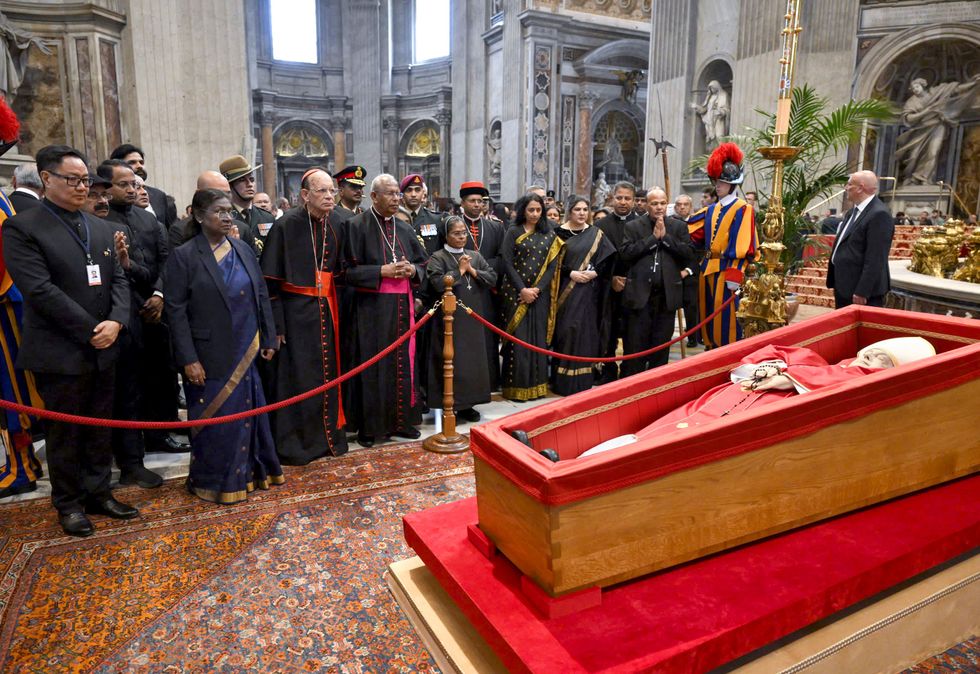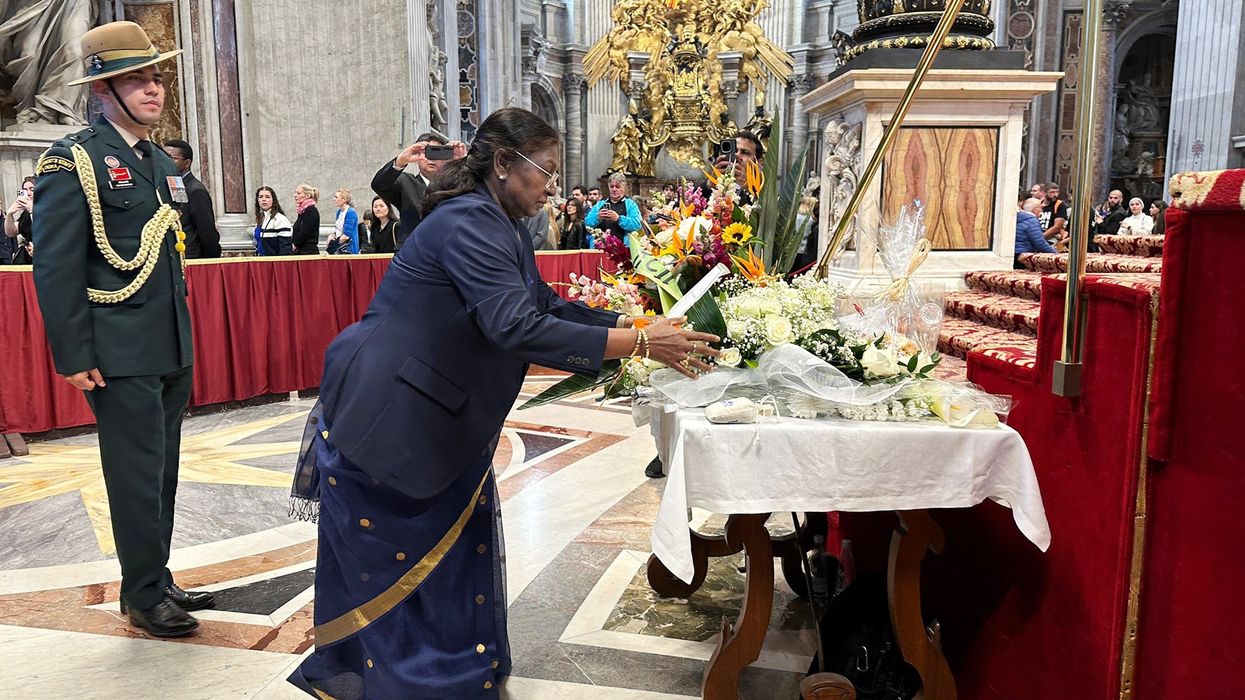INDIAN president Droupadi Murmu represented India at the funeral mass of Pope Francis in Vatican City on Saturday (26), joining around 200,000 mourners and more than 50 heads of state in bidding farewell to the pontiff who passed away at age 88.
Murmu arrived in Rome on Friday (25) and visited Saint Peter's Basilica to pay homage to the late Pope. She was accompanied by Indian ministers Kiren Rijiju and George Kurian, along with Goa assembly deputy speaker Joshua D'Souza as part of the official Indian delegation.
The Indian head of state's participation underscored the diplomatic significance of the event, with the government having declared three days of state mourning as a mark of respect for Pope Francis. Two days of mourning were observed on April 22 and 23, with the final day coinciding with Saturday's funeral.
In accordance with protocol, the Indian national flag was flown at half-mast throughout the country on buildings where it is regularly displayed, and all official entertainment was cancelled.
The funeral ceremony began at 10am local time in St Peter's Square, where vast crowds had gathered from dawn, with some faithful having waited overnight to secure positions. Vatican and Italian authorities mounted an extensive security operation, including a no-fly zone, fighter jets on standby, and snipers positioned on surrounding rooftops.
Pope Francis, the first Latin American leader of the Roman Catholic Church, died on April 21 at his residence in the Vatican's Casa Santa Marta from stroke and heart failure. He had been hospitalised with pneumonia for five weeks shortly before his death. His 12-year papacy began in March 2013 when he succeeded Pope Benedict XVI.
The funeral drew an impressive gathering of global leaders. US president Donald Trump attended alongside his wife Melania, marking his first foreign trip since beginning his second term. Other notable attendees included former US president Joe Biden, UN secretary-general Antonio Guterres, Ukrainian president Volodymyr Zelensky, Argentine president Javier Milei, Brazilian president Luiz Inacio Lula da Silva, French president Emmanuel Macron, and Lebanon's president Joseph Aoun. British Prince William was among more than a dozen royals present.
Diplomatic tensions were evident in some attendance choices. Israel, which had been criticised by Francis for its conduct in Gaza, sent only its Holy See ambassador. China, lacking formal relations with the Vatican, did not send any representative.

The ceremony featured 224 cardinals and 750 bishops and priests alongside the world dignitaries. Following the funeral, the Pope's coffin was transported to the Santa Maria Maggiore basilica via the Fori Imperiali—where Rome's ancient temples stand—and past the Colosseum.
A group described by the Vatican as "poor and needy" greeted the hearse upon its arrival, reflecting Francis's lifelong commitment to serving marginalised communities.
True to his humble character, Pope Francis requested burial in a single wooden coffin to be laid in a simple marble tomb at his favourite Rome church, Santa Maria Maggiore—making him the first pontiff in over a century to be buried outside Vatican walls.
The Argentine pontiff's papacy was marked by efforts to steer the Church in a more inclusive direction. He championed the poor, embraced migrants, and addressed global issues such as climate change. His final public act, just one day before his death, was an Easter Sunday blessing to the world, concluding his papacy as he had begun—with an appeal to protect "the vulnerable, the marginalised and migrants."
Francis's tenure saw significant reforms that sometimes angered traditionalists. He allowed divorced believers to receive communion, approved the baptism of transgender believers and blessings for same-sex couples, and refused to judge gay Catholics. However, he maintained the Church's opposition to abortion, balancing progressive reforms with traditional doctrine.
His passionate advocacy for migrants was evidenced by his first papal trip to Lampedusa, an Italian island often serving as the first European landfall for Mediterranean migrants. During a later visit to Greece's Lesbos island, he flew 12 refugees home with him—some of whom attended his funeral.
The Pope's death initiates a nine-day period of official Vatican mourning, after which cardinals will gather for the conclave to elect a new pontiff to lead the world's 1.4 billion Catholics.
Catholics worldwide held events to watch the proceedings live, including in Buenos Aires, where 25-year-old Lara Amado remarked, "The pope showed us that there was another way to live the faith."
(Agencies)





